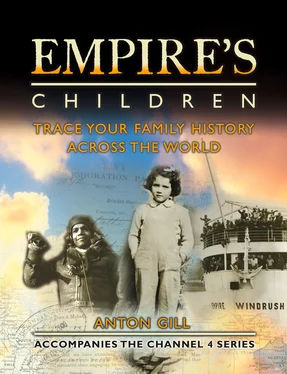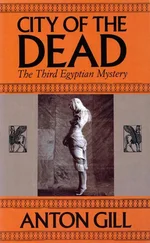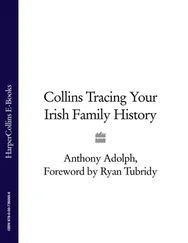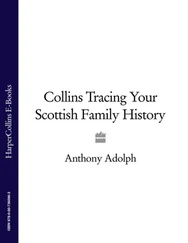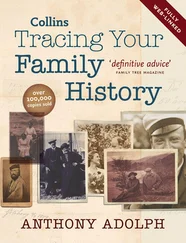Place names can change with the political climate. Look, for example, at the progression over the last century or so from St Petersburg to Petrograd, to Leningrad, and now back to St Petersburg. If you look at an atlas published in 1937 and at an atlas published in 2007 you will see a large number of name and even frontier changes, in the Russian landmass, in what was British India, and in Africa. Only British India and Africa concern us here, and almost all the dramatic changes of name there had taken place by 1980, when the last British colony, Rhodesia (earlier, Southern Rhodesia), became Zimbabwe.
One or two countries have changed their names twice or more in the past half-century. For example, the Belgian Congo gained independence in 1960 and became the Republic of the Congo, a name it shared with a neighbouring state, the former French colony of Congo. In 1966 the former Belgian territory was renamed the Democratic Republic of the Congo. After a period of war and unrest one political leader, General Mobutu, became dominant, and under him the country became the Republic of Zaire in 1971. (The name ‘Zaire’ derives ultimately from Nzere , a local name for the River Congo.) But, as was the case in so many newly independent African states, repression and unrest continued, and Zaire’s future was compromised in the mid-1990s by involvement in the war in neighbouring Rwanda. This led to the fall of Mobutu and the reversion under new leadership, in 1997, of Zaire to its earlier name of the Democratic Republic of the Congo.
Many other colonies – British and otherwise – in Africa changed their names on independence, often reverting to pre-colonial or ancestral names. Thus the first to attain autonomy, the Gold Coast, became Ghana. Tanganyika and Zanzibar merged as Tanzania, Nyasaland became Malawi, Northern Rhodesia became Zambia, Bechuanaland became Botswana, South-West Africa became Namibia (as late as 1990), and so on.
The situation in what had been known as British India (prior to the end of the Second World War) changed with the end of British rule there and the political partition of the subcontinent in 1947. The original divisions were India, East and West Pakistan, Burma and Ceylon, along with a couple of the former Independent States (separate countries within the Raj but more or less in thrall to it) which had refused to become subsumed within either the new Hindu or Pakistani divisions. One of these, Kashmir, is still being fought over today. Ceylon, independent of Britain since 1948, changed its name to Sri Lanka (meaning ‘Venerable Lanka’) following a socialist revolution in 1972. A year earlier, East Pakistan (itself formerly Bengal) broke away from West Pakistan (now Pakistan (‘Land of the Pure’) and became the independent state of Bangladesh (‘Land of the Bangla Speakers’). Burma, which became fully independent of Great Britain in 1948, changed its name to Myanmar (its pre-colonial name) in 1989, and that of its capital from the westernized ‘Rangoon’ to ‘Yangon’.
I have decided to follow my own judgement in what place names to use in the pages which follow. This means on the whole that for African and South Asian countries I will use their current names, with their former colonial names afterwards in brackets where appropriate. However, in some cases I have stuck to older usages as still being more familiar to most readers. Thus, for example, although I have preferred Beijing to Peking, I have used Madras rather than Chennai, Bombay rather than Mumbai, and Burma and Rangoon rather than Myanmar and Yangon. I have also used Mecca rather than Makkah, Cawnpore rather than Kanpur, Calcutta rather than Kolkata, and Mafeking rather than Makifeng. Where any elucidation or explanation is necessary, I have given it immediately in parentheses, but in the course of telling a complex story I apologize here and now for any inconsistencies.
Where it applies (England was a separate country from Scotland until 1707 and Scotland played only a tiny part in an independent colonization process before then) I have also decided to use ‘Great Britain’ or ‘Britain’ rather than ‘the United Kingdom’ because to me the former names reflect the period better than the latter, and tie in more euphoniously with what lies at the centre of this exploration of the British Empire.
But as the debate was nearing an end, I felt I had been too harsh with the man who would be my partner in a government of national unity. In summation, I said, ‘The exchanges between Mr (F. W.) de Klerk and me should not obscure one important fact. I think we are a shining example to the entire world of people drawn from different racial groups who have a common loyalty, a common love, to their common country… In spite of criticism of Mr de Klerk,’ I said, and then looked over at him, ‘sir, you are one of those I rely upon. We are going to face the problem of this country together.’ At which point I reached over to take his hand and said, ‘I am proud to hold your hand for us to go forward. ‘Mr de Klerk seemed surprised, but pleased.
Nelson Mandela
At the end of January 2007 the Anglo-Dutch metals giant Corus, which had until a 1999 merger been British Steel, was bought by the Indian company, Tata Steel, of Jamshedpur. One hundred years earlier, when the British Empire was at its height, such a future concept would have been unthinkable. Even sixty years ago, when, in August 1947, India finally achieved its independence in a hurried and, some still argue, botched job by its last Viceroy, Lord Louis Mountbatten, the idea of an Indian concern taking over a British one would have been beyond the scope of most imaginations, Indian or British. The visionary novelist Salman Rushdie, whose seminal work, Midnight’s Children , redefined the moment of independence for a new generation, could not have conceived of it when his ground-breaking work was published twenty-six years ago, when the author himself was a mere thirty-four years old.
The world has turned radically in a half-century, and in doing so it has submerged the greatest, largest and longest-lived empire that ever was, and seen the reduction of its mother country from a real world leader to one which on the one hand hangs on the coat-tails of the USA, and on the other refuses fully to integrate with its natural partners in Europe. We, the Children of Empire, still retain a memory that seems more concrete than ghostly of our powerful past, and it still influences our thinking.
But when I say ‘we’ in such a context I am immediately at fault, because there are Children of Empire who are not by descent British at all, except for the fact that the countries they or their parents or grandparents or even earlier forebears came from for generations – in some cases back to the seventeenth century – lived under the shadow and protection of the British Crown. As we settle into the twenty-first century, we must grow used to the idea that India will soon overtake China in terms of population size; and that both those countries will soon become the dominant industrial and economic powers of the world.
In the pages that follow we will hear some of their stories, but here at the beginning it is worth making one allusion to the first wave of Caribbean immigrants to British shores, in 1948, nearly sixty years ago, on the Empire Windrush. Small in number – there were fewer than 500 of them – the men and women of the Windrush , dressed in their best, who had come to seek a new life in a mother country they had always been taught to love, respect and revere, met a mixed reception. A nervous parliament prevaricated – though Prime Minister Clement Attlee stood firmly on the side of the angels – while the racist extreme right, headed by Oswald Mosley, who had previously supported Hitler’s anti-Semitic policies, foamed at the mouth. A decade later, after suffering years of poor lodgings for high rents, and a gamut of racist prejudice from the locals, the immigrants had to suffer one more great indignity – the race riots of Nottingham and then Notting Hill in the summer of 1958. Here it will suffice merely to quote from Mike and Trevor Phillips’s masterly account, largely through vox pop interviews, of early immigration to Britain, Windrush – the Irresistible Rise of Multi-Racial Britain , to give a flavour of those times:
Читать дальше
